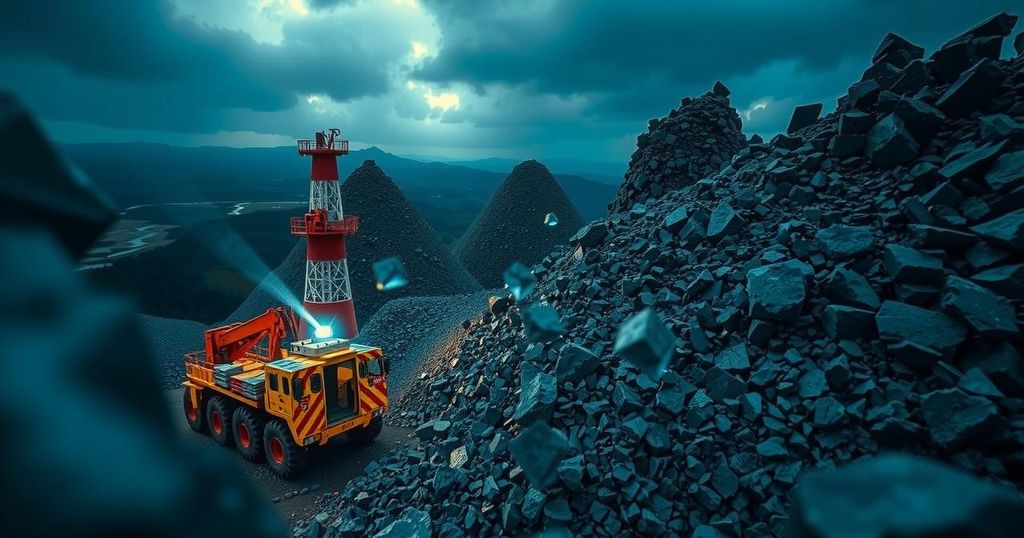Europe’s Cobalt Dilemma: Navigating Dependency and Sustainability in Congo

The article discusses Europe’s reliance on Congo’s cobalt supply amid growing demand for sustainable and ethical sourcing. With two-thirds of the global cobalt supply from the DRC, the article highlights concerns about exploitation in mining and the dominance of Chinese processing. Significant efforts are needed to forge equitable partnerships between Europe and the DRC that prioritize local needs, sustainability, and mutual respect.
Europe may have underestimated the impact of Congo’s booming cobalt industry, which is crucial for the continent’s climate transition efforts. Significant policies, as articulated by European Parliament member Marie-Pierre Vedrenne, emphasize the need for sustainable and ethical sourcing of materials, particularly to prevent child labor and exploitation in mining activities. In the Democratic Republic of the Congo (DRC), cobalt is predominantly extracted under harsh conditions, with miners like Paul Zagabe Nbanze highlighting concerns over the opaque practices in the supply chain.
The pressing demand for cobalt arises from its essential role in battery production for renewable energy technologies. Currently, two-thirds of the world’s cobalt supply comes from the DRC, with production having risen dramatically from 800 metric tons in 1994 to 98,000 metric tons by 2020. However, most processing occurs in China, creating an imbalance that complicates Europe’s ambitions to establish direct supply chains. Cecilia Trasi, an analyst from the think tank Bruegel, warns that Europe is reliant on Chinese processing industries, underscoring the urgent need for a more equitable partnership that respects DRC’s needs.
Historical exploitation has left deep scars in the DRC, with past regimes failing to foster sustainable development in the mining sector. Businessman Simon Tuma Waku emphasizes that African countries must be treated as equal partners, stating, “Don’t force us to do something that you think is best for us. Rather ask us what we want to do.” The DRC has initiated reforms to attract private investment in the mining sector, promoting environmental sustainability through updated mining codes.
European initiatives are emerging, such as the Lobito Corridor project, aimed at enhancing infrastructure to facilitate trade between mineral-rich areas in the DRC and European markets. Jutta Urpilainen, the outgoing EU Commissioner for International Partnerships, advocates for continued European investment in development cooperation to position the continent as a responsible global partner. Nonetheless, China’s dominance over Congolese exports suggests that Europe faces a significant challenge in becoming the DRC’s preferred trade partner, with skepticism regarding the implementation of domestic reforms further complicating this prospect.
Cobalt, a key element in batteries, plays an indispensable role in Europe’s transition towards climate neutrality by 2050. The DRC’s dominance in cobalt supply is underscored by its substantial production volumes and the critical dependency of European nations on this resource for their energy strategies. However, the processing of cobalt predominantly occurs in China, highlighting an imbalance in supply chains that necessitates a re-examination of partnerships between Europe and the DRC.
In summary, Europe’s cobalt dependency has prompted calls for more ethical sourcing practices and collaborative engagement with the DRC. As the continent navigates its energy transition, strategic partnerships should prioritize sustainability and address the historical injustices faced by Congolese miners. The challenge lies in recalibrating these relationships to ensure equitable economic benefits and political alignment while fostering local capacity building in the DRC.
Original Source: www.dw.com






